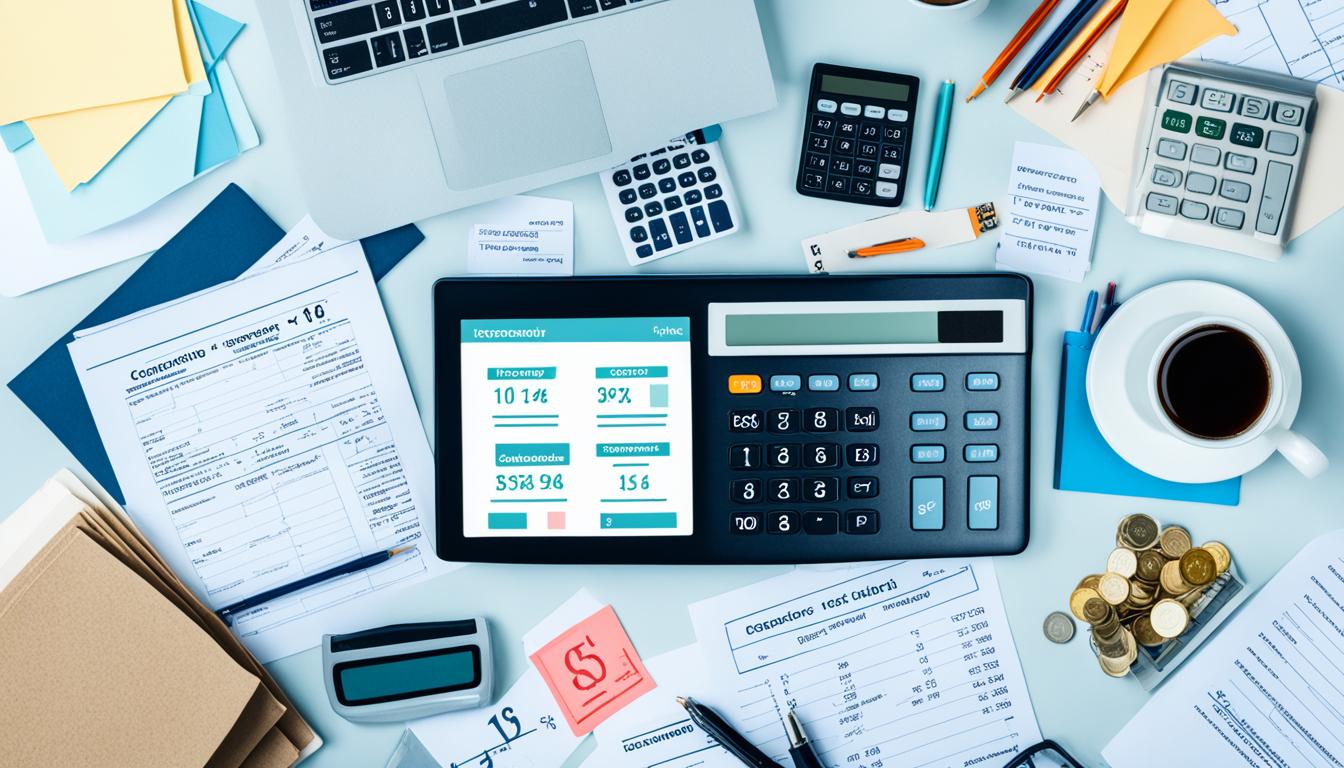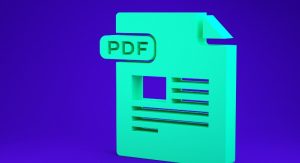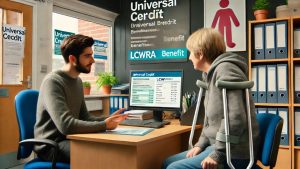Are you navigating the maze of self-employment in the UK and wondering what expenses you can claim? Look no further! In this comprehensive guide, we’ll unravel the complexities and provide clarity on deductible expenses, helping you optimize your finances and maximize your tax savings. Let’s dive in!
What Expenses Can I Claim as Self Employed in UK?
As a self-employed individual in the UK, understanding what expenses you can claim is crucial for maximizing your tax deductions and reducing your overall tax liability. By claiming allowable expenses, you can deduct certain costs from your taxable profit, thereby lowering the amount of income tax you need to pay.
But what exactly are allowable expenses for self-employed individuals? Let’s take a closer look at the different categories of deductible expenses:
1. Office Costs: This includes expenses related to your work premises, such as office rent, business rates, heating, lighting, and maintenance. Additionally, office supplies, stationery, phone bills, and computer equipment can also be claimed as allowable expenses.
2. Travel Expenses: If you incur travel costs for business purposes, such as fuel costs, parking fees, or train fares, you can claim them as allowable expenses. However, it’s important to note that travel to and from your workplace is not considered a business expense.
3. Clothing Expenses: Self-employed individuals can claim clothing expenses if the clothing is necessary for their work. This includes uniforms, protective clothing, and costumes for performers. Everyday clothing that could be considered part of a regular wardrobe, however, is not eligible for tax relief.
4. Staff Costs: If you employ staff or hire subcontractors for your business, you can claim their salaries or fees as allowable expenses. This includes regular wages, bonuses, pension contributions, and employer’s National Insurance contributions.
5. Reselling Goods: If you resell goods, you can claim expenses related to the purchase of stock or raw materials as allowable expenses. Keeping track of your inventory and retaining invoices or receipts for the purchase of goods is essential.
6. Legal and Financial Costs: Legal fees, financial costs, professional fees, and insurance premiums directly related to your business activities can be claimed as allowable expenses. This includes fees paid to professionals such as accountants, solicitors, and surveyors for business-related advice or services.
7. Marketing, Entertainment, and Subscriptions Expenses: Costs related to advertising, website development, promotional events, and trade subscriptions or memberships can be claimed as allowable expenses. However, expenses for entertaining clients or suppliers are not eligible for tax relief.
To ensure that your expenses are eligible for tax relief, it is crucial to keep detailed records and retain invoices or receipts as proof. Additionally, bear in mind that different rules may apply if you run your own limited company.
By understanding what expenses you can claim as a self-employed individual in the UK, you can effectively manage your finances and optimize your tax situation. So, start exploring the allowable deductions available to you and make the most of your business expenses.
Office, Property and Equipment Expenses
As a self-employed individual, you have the opportunity to claim various expenses related to your office, property, and equipment as allowable expenses. These deductible expenses can help you reduce your overall income tax liability and maximize your business profits.
When it comes to your business premises, you can claim expenses such as office rent, business rates, heating, lighting, and maintenance costs. These expenses are essential for maintaining a functional and productive workspace.
In addition to office-related expenses, you can also deduct expenses for office supplies, stationery, phone bills, and computer equipment. These items are vital for running your business efficiently and effectively.
By claiming these office, property, and equipment expenses, you can optimize your business finances and ensure that you are only paying tax on your net income.
Deductible Office, Property, and Equipment Expenses:
| Expense Category | Examples |
|---|---|
| Office Expenses | Rent, business rates, heating, lighting, maintenance |
| Property Expenses | Insurance, security, cleaning |
| Equipment Expenses | Office supplies, stationery, phone bills, computer equipment |
By carefully tracking and documenting these expenses, you can ensure that you are fully utilizing the tax benefits available to self-employed individuals. Consult with a financial professional or tax advisor to ensure that you are claiming all eligible expenses and maximizing your tax savings.
Travel Expenses
Travel expenses can be claimed as allowable expenses for self-employed individuals when incurred for business purposes. These expenses include fuel costs, parking fees, train or bus fares, and other transportation expenses that are directly related to your business activities.
“Business travel costs can be deducted as allowable expenses for self-employed individuals.”
However, it’s important to note that travel expenses for commuting to and from your workplace are not considered business expenses and cannot be claimed. Only the cost of travel necessitated by your work, such as visiting clients or attending meetings, can be deducted.
| Type of Travel Expenses | Allowable for Deduction? |
|---|---|
| Fuel costs | Yes |
| Parking fees | Yes |
| Train or bus fares | Yes |
| Other transportation expenses related to business | Yes |
| Travel to and from workplace | No |

Claiming deductible travel expenses can help reduce your overall taxable profit, thereby lowering your income tax liability. It’s important to keep detailed records of your travel expenses, including receipts and supporting documents, to justify your claims to HM Revenue and Customs.
Clothing Expenses
Self-employed individuals can claim clothing expenses as allowable expenses if the clothing is necessary for their work. This includes uniforms, protective clothing, and costumes for performers. However, everyday clothing that could be considered part of a regular wardrobe is not eligible for tax relief.
It’s important to keep records and receipts to support your claims for clothing expenses. This will help ensure that you can provide evidence in case of a tax audit. The records should clearly indicate the work-related nature of the clothing and its use in your self-employed activities.
Examples of Deductible Clothing Expenses
- Uniforms: If you have a specific dress code or uniform requirement for your business, such as a branded shirt or a safety vest, the cost of purchasing and maintaining these uniforms can be claimed as a deductible expense.
- Protective Clothing: If your work requires protective clothing, such as safety boots, helmets, gloves, or goggles, the cost of purchasing and maintaining these items can be claimed as a deductible expense.
- Costumes: For performers, the cost of purchasing or renting costumes for stage performances, concerts, or other work-related events can be claimed as deductible expenses.
It’s important to note that claiming clothing expenses as deductions can be subject to scrutiny by HM Revenue and Customs (HMRC). Therefore, it’s essential to ensure that the clothing expenses you claim are genuinely work-related and necessary for your business activities.

Staff Expenses
If you have employees or hire subcontractors for your self-employed business, you can claim their salaries or fees as allowable expenses. This includes regular wages, bonuses, pension contributions, and employer’s National Insurance contributions. By deducting these costs from your taxable profit, you can effectively lower your overall income tax liability.
It is crucial to maintain detailed records of these expenses to support your claims. Keep accurate payroll records, including employee details, wages, and deductions. Additionally, retain invoices from subcontractors or self-employed workers to validate their fees as allowable expenses.
Ensuring proper documentation not only helps you comply with tax regulations but also provides transparency and accountability for your business expenses.
When claiming staff costs as allowable expenses, it is essential to understand the distinction between employed staff and subcontractors. Employed staff refers to individuals who work under a contract of service, while subcontractors are self-employed individuals who work under a contract for services. Ensuring you classify your workers correctly is crucial to accurately claim the relevant expenses.
Sample Table: Employee Salaries and Subcontractor Fees
| Expense Type | Description | Amount (£) |
|---|---|---|
| Employee Salaries | Regular wages paid to employed staff | 10,000 |
| Bonuses | Additional financial incentives for exceptional performance | 2,000 |
| Pension Contributions | Employer’s contributions to employee pension schemes | 1,500 |
| Employer’s National Insurance Contributions | Contributions paid by the employer for employed staff | 1,200 |
| Subcontractor Fees | Fees paid to self-employed subcontractors for services rendered | 5,000 |
By accurately claiming staff expenses, you can optimize your tax position and allocate funds to other areas of your business.

Reselling Goods Expenses
As a self-employed individual who resells goods, you can claim expenses related to the purchase of stock or raw materials as allowable expenses. These expenses can be deducted from your taxable profit, reducing your overall income tax liability. By properly managing and documenting your reselling expenses, you can maximize your deductions and minimize your tax obligations.
Stock Expenses
One of the main expenses for resellers is the cost of purchasing stock. Whether you are buying products to sell online, in a physical store, or at market stalls, you can claim the costs associated with acquiring inventory as allowable expenses. This includes the purchase price of the goods, as well as any delivery or shipping fees incurred.
It’s important to keep track of your inventory and retain invoices or receipts for the purchase of goods. This documentation will serve as evidence of your stock expenses, making it easier to claim deductions when it’s time to file your taxes.
Raw Material Costs
If your reselling business involves creating or manufacturing products, you can also claim the expenses related to purchasing raw materials. Whether you’re making handmade crafts, customized items, or any other goods that require materials, these costs can be considered allowable expenses.
Be sure to retain invoices or receipts for the raw materials you purchase. This documentation will support your claim for deductions and help substantiate your expenses in case of any tax audits or inquiries.
Goods for Sale Expenses
In addition to stock and raw materials, you may incur other expenses related to the goods you have for sale. This can include packaging materials, printed labels, tags, protective packaging, and any other items directly associated with preparing your products for resale.
Keep track of these expenses and retain relevant documentation, such as receipts or invoices. These records will enable you to claim these costs as allowable expenses and reduce your taxable profit.
By understanding and utilizing the tax benefits available to you as a self-employed reseller, you can effectively manage your finances and minimize your tax liability. Keep accurate records of your reselling expenses and consult with a tax professional to ensure you maximize your deductions while staying compliant with tax regulations.
Legal and Financial Costs
Self-employed individuals can claim a variety of legal and financial costs as allowable expenses for their business. These expenses include professional fees, insurance costs, and other financial expenses directly related to your business activities.
One of the main legal costs that self-employed individuals can claim is the fees paid to professionals such as accountants, solicitors, and surveyors for business-related advice or services. Whether you need assistance with bookkeeping, tax planning, or legal contracts, these professional fees can be deducted as allowable expenses, reducing your taxable profit.
Additionally, insurance costs are also eligible for tax relief. This includes premiums paid for business insurance policies such as public liability insurance, professional indemnity insurance, or employer’s liability insurance. By claiming these insurance costs as allowable expenses, you can effectively reduce your overall tax liability.
It’s important to keep accurate records of these expenses and retain invoices or receipts as proof. These documents are crucial in case of any future tax audits or inquiries. By maintaining organized records, you can ensure that your allowable expenses are fully documented and legitimate.
“As a self-employed individual, it’s essential to understand the different legal and financial costs that you can claim as allowable expenses. By taking advantage of these deductions, you can effectively reduce your overall tax liability and keep your business financially healthy.”
Example of Legal and Financial Costs
| Expense | Cost |
|---|---|
| Accountant’s fees | £800 |
| Solicitor’s fees | £500 |
| Surveyor’s fees | £300 |
| Business insurance premiums | £1,200 |
| Bank charges | £100 |
Table: Example of legal and financial costs that can be claimed as allowable expenses for self-employed individuals.
Marketing, Entertainment, and Subscriptions Expenses
As a self-employed individual, you can deduct marketing expenses from your taxable profit. This includes costs related to advertising your business, such as creating and placing ads, printing promotional materials, and running online marketing campaigns. Additionally, expenses for website development and maintenance are also eligible for tax relief. By investing in marketing, you can reach a wider audience and attract more customers, which can ultimately contribute to the growth of your business.
While marketing is essential for business promotion, it’s important to note that expenses for entertaining clients or suppliers are not tax deductible. So, if you treat a client to a meal or entertainment, these costs cannot be claimed as allowable expenses. However, you can still claim other expenses directly related to business promotion and development, such as attending trade shows or industry conferences. Just make sure to keep detailed records and retain receipts to support your claims.
In addition to marketing expenses, self-employed individuals can also claim subscriptions and memberships related to their trade as allowable expenses. This includes joining professional associations or industry-specific organizations that provide valuable resources and networking opportunities. By staying connected with your industry and accessing relevant resources, you can enhance your professional skills and stay up-to-date with the latest trends and developments.
It’s important to keep accurate records of all marketing, subscription, and entertainment expenses in order to comply with tax regulations. By claiming these allowable expenses, you can effectively manage your business costs and reduce your overall tax liability.
FAQ
What legal and financial costs can self-employed individuals claim as allowable expenses?
Self-employed individuals can claim legal and financial costs as allowable expenses. These include fees paid to professionals such as accountants, solicitors, and surveyors for business-related advice or services. Bank charges, insurance premiums, and other financial costs directly related to your business activities are also eligible for tax relief. Keep records of these expenses and retain invoices or receipts as proof.
Can self-employed individuals claim marketing, entertainment, and subscription expenses?
Yes, self-employed individuals can claim marketing, entertainment, and subscription expenses as allowable expenses. This includes costs related to advertising, website development and maintenance, promotional events, and trade subscriptions or memberships. However, it’s important to note that expenses for entertaining clients or suppliers are not eligible for tax relief. Only expenses directly related to business promotion and development can be claimed.




